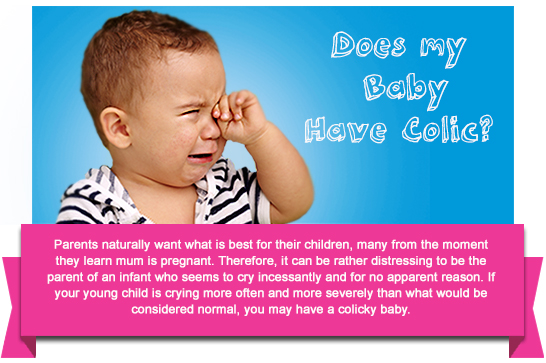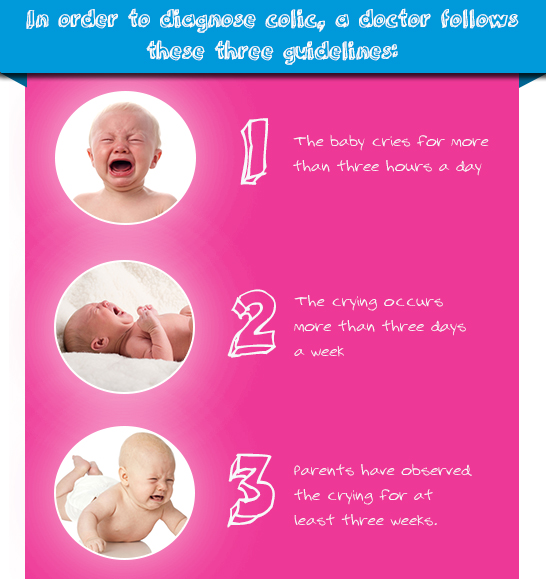
Colic in a child is very stressful on parents for a number of reasons. First of all, the constant crying can be exhausting in and of itself. But second, parents often feel guilty because they believe they have done something wrong. Some even believe they will never be good parents because nothing they do seems to comfort or soothe their baby. The parents of colicky children need to know that the condition is fairly common and will eventually go away. In the meantime, there are things parents can do that might help.

Colic is not a disease or illness in the sense that it has a physiological cause that can be identified and monitored. For example, another common newborn illness, known as jaundice, is defined as having excess bilirubin in the blood. It is an illness with a clear physiological cause. Colic is different. Colic is defined as frequent and excessive crying in infants that are otherwise completely healthy. There is no physiological trigger that we know of.

Medical science is not sure exactly what causes a child to be colicky. Some theorise that stomach pain or discomfort may be behind it, given the fact that some babies with colic will raise their legs toward the chest. During an episode of colic, a baby is not interested in feeding, sleeping, or much of anything else.

Nearly every infant experiencing colic is fine after three or four months. Bouts of colic gradually subside on their own over time, so as long as your baby is growing, putting on weight, and eating normally, you can just wait it out. Doctors do recommend parents of colicky babies establish some concrete ways they can get a break from the crying. Suggestions include taking turns caring for the baby, taking time out to call friends to talk, etc.

Massage provides interaction, simulation, relief, and relaxation for your baby. Even more importantly, it strengthens the bond between parent and child. That stronger bond can go a long way toward relieving whatever distress is causing the colic.
The key to the hands-on baby massage is establishing two-way communication between parent and child. As you learn to perform massage correctly, you will also learn to identify your baby's non-verbal communication cues by how he or she responds. You will learn how to positively stimulate your baby to relieve the stress and anxiety that comes with colic.
If the colic in your baby is caused by stomach pain, the pain could be the result of digestive problems or the normal growth and development of muscles in the stomach region. Hands on baby massage can relieve both.

f you are struggling with a colicky baby, we urge you to talk to someone who can help. Colic can be a very stressful condition that can needlessly damage the relationship between you and your baby in those first few months of life. By getting some help, you can work through this trying time, coming out the other side with a happier baby and a stronger bond between the two of you.
Sources: